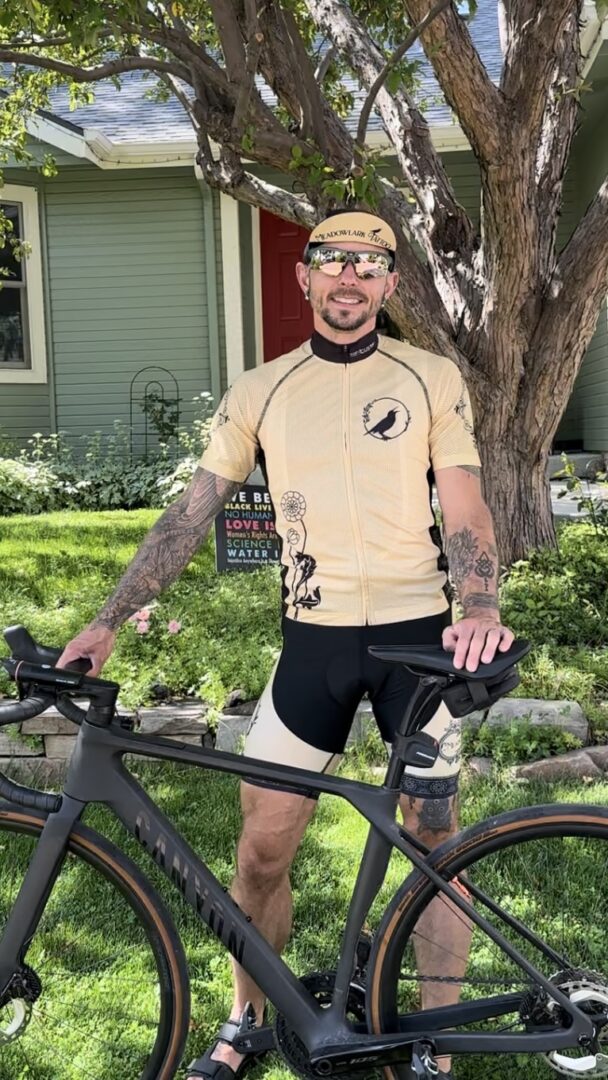We recently connected with Cei Lambert and have shared our conversation below.
Hi Cei , so excited to talk about all sorts of important topics with you today. The first one we want to jump into is about being the only one in the room – for some that’s being the only person of color or the only non-native English speaker or the only non-MBA, etc Can you talk to us about how you have managed to be successful even when you were the only one in the room that looked like you?
As a hybrid professional I find myself in many different spaces, and they all have social expectations for the “kind” of person who should be there. In none of my work do I fit the mold: I’m a very mild looking tattoo artist; I’m a very wild looking public health professional; I’m at once too professional and too tattooed for academia. On top of that, I am shorter than most men, I’m bald, I look younger than I am until you see the wrinkles around my eyes, and nothing about how I got to where I am today follows any kind of paved road.
The two things that helped me to be effective and successful while looking totally out of place in all settings are:
1. I’ve always been out of place, so I’m used to it. When I was younger I worried about whether I would be accepted, but by
the time I got to high school I had given that it up in favor of being aggressively weird. I got over needing to be extra outside the box, settled into living my truth, and by the time I got out of graduate school I simply didn’t care what anyone thought of how I lived my life or chose to present my physical body in the world. I work hard and am effective and successful because the opinions of others don’t slow me down at all.
2. I use my distinctive physical appearance and life experience to be even better at all my jobs. As a tattoo artist I challenge stereotypes that tattoo artists are dirty and hard-partying people with low professionalism. As a healthcare consultant I challenge the idea that people in highly respected professions only wear a suit and tie and only come from coastal elite institutions. As a professor I challenge the notion that academia must be presented in a sterile environment and that teachers can’t be whole people. In each case I see that I am more effective and more successful at each job because I push the boundaries of what is expected from professionals in each space.
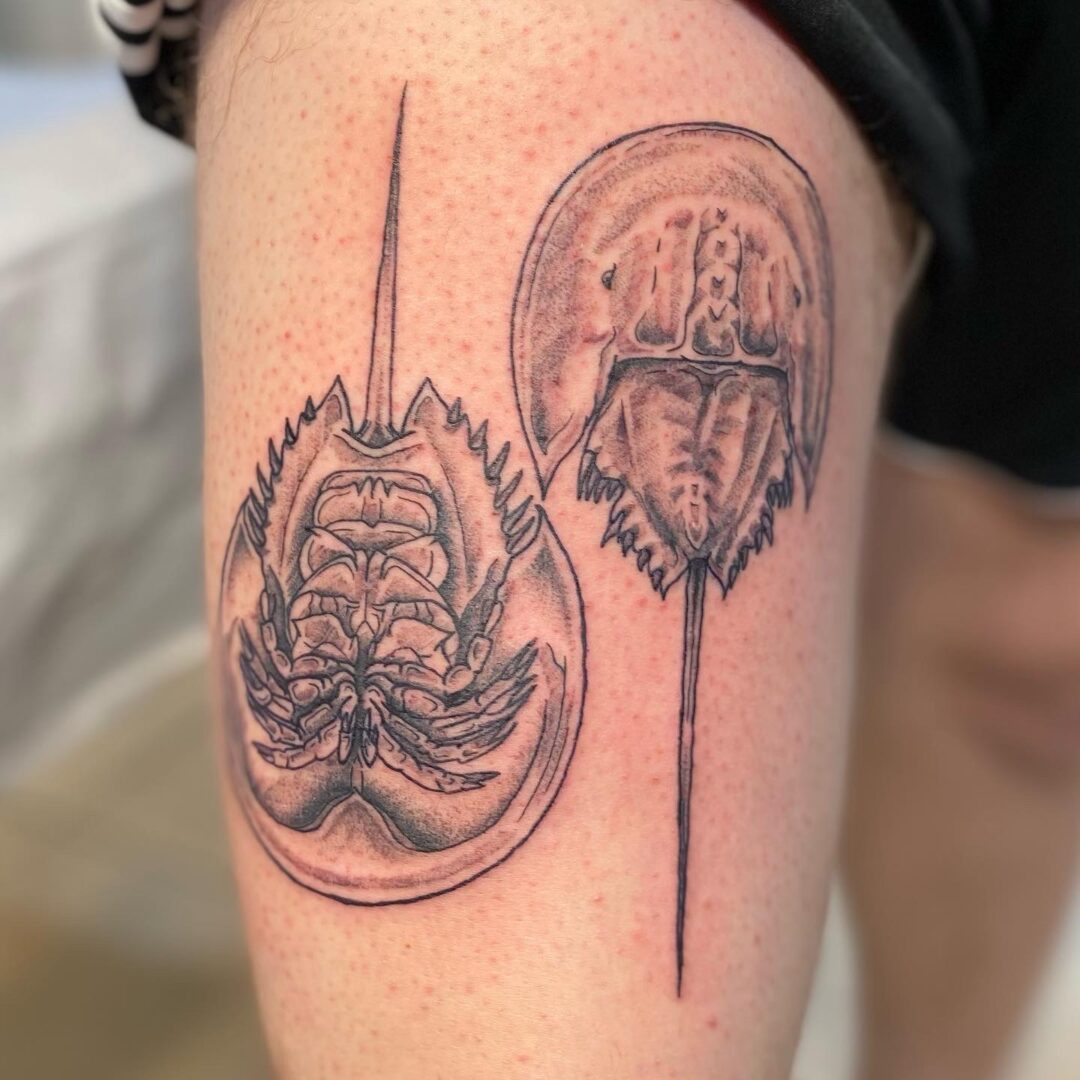
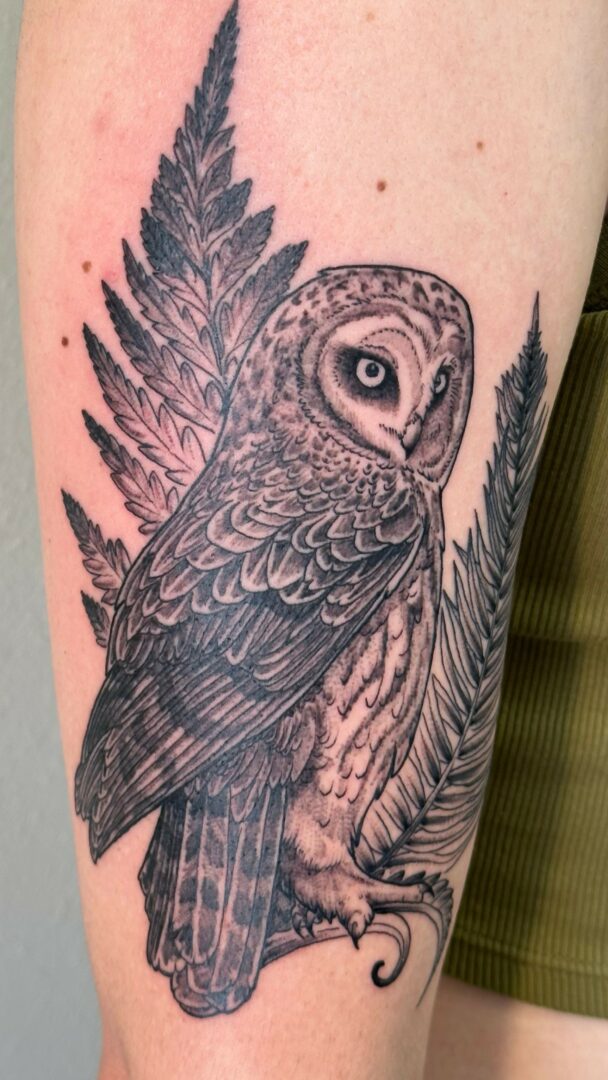
Thanks for sharing that. So, before we get any further into our conversation, can you tell our readers a bit about yourself and what you’re working on?
My main job is as the owner and artist for my bespoke tattoo studio, Meadowlark Tattoo. I opened Meadowlark Tattoo in 2020 both so that I could have my own studio that I could operate the way I wanted, and in response to a lack of studios/shops that prioritize client’s identity, psychological safety, and values. Many tattoo spaces in the United States are staffed and owned by folks who are racist, homophobic, sexist, transphobic, and more. In most cases these biases are subtle, but for something as intimate as a tattoo, they almost always matter. At Meadowlark Tattoo my goal is for every client to feel like they can be their entire self, that they can be a collaborator and partner in making their tattoo, and that they will be listened to when they express their needs and identity.
Artistically I specialize in fine line illustrative tattoos of nature. I love tattooing birds and botanicals. I also make a lot of tattoos that directly connect to uplifting people in their identity: top-surgery scar tattoos, coverup tattoos, memorial tattoos, and more.
I am an avid volunteer and am deeply invested in using my platform as a tattoo artist to meet the needs of my community, particularly wildlife rehabilitation and preservation. Be on the lookout for tattoo fundraisers for organizations like the Northern Colorado Wildlife Center and the Rocky Mountain Raptor Program!
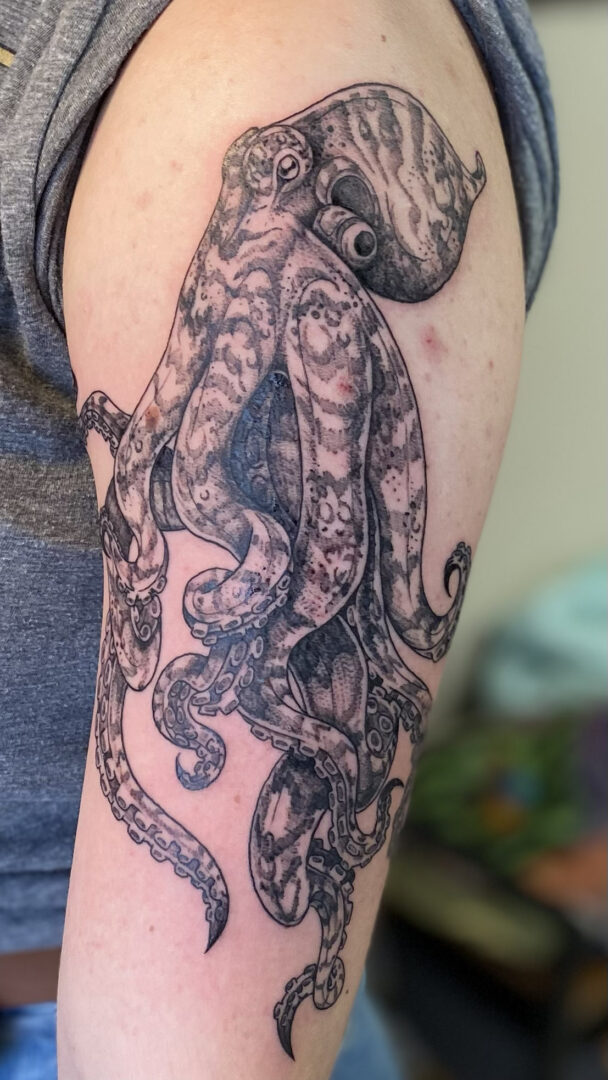
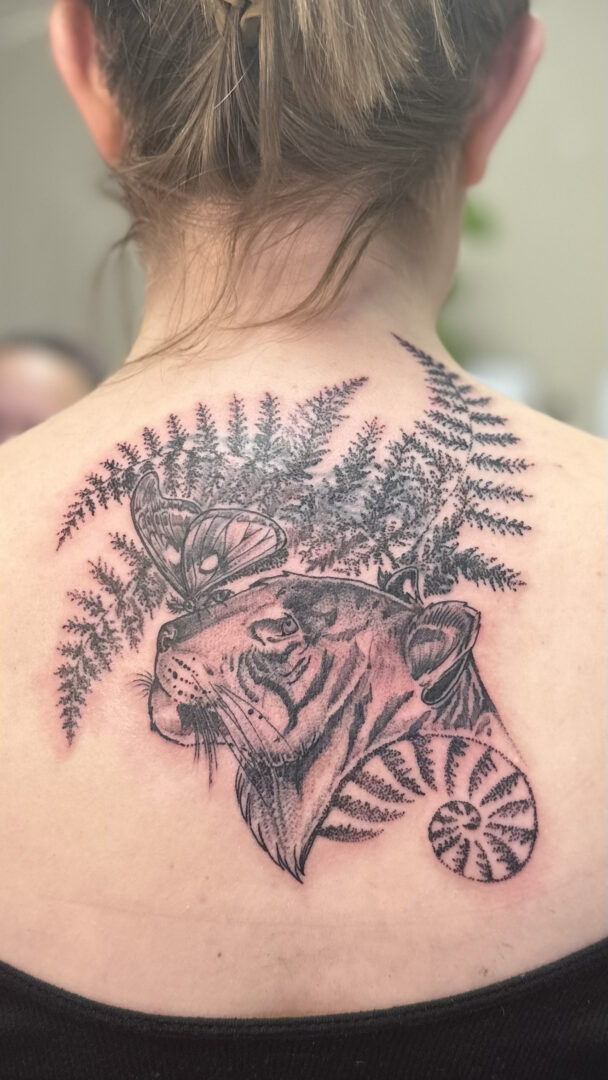
Looking back, what do you think were the three qualities, skills, or areas of knowledge that were most impactful in your journey? What advice do you have for folks who are early in their journey in terms of how they can best develop or improve on these?
I learned the three most important skills and qualities for my work and my life in Tae Kwon Do, which I have practiced for almost 30 years. We were taught the tenants of Tae Kwon Do are: courtesy, integrity, perseverance, indomitable spirit, and self control. All five are important, and the three that stand out to me in my professional life are perseverance, integrity, and self control.
Perseverance is my greatest strength. I can’t always guarantee that I will do everything perfect, or that I will do it perfectly the first time, but I will never stop trying. My career as a tattoo artist began with being fired from a tattoo shop where I had strong differences with the shop owner, in the middle of COVID (I was fired in June 2020 and opened Meadowlark Tattoo in August 2020). When I opened my shop I was told by many tattoo artists that I would not succeed for all kinds of reasons: I was too new to the profession, I needed a shop crew around me, I was too old, I was too young… just about everything about me seemed to give people a reason to tell me to quit. I didn’t know if I would succeed, but I refused to quit, and I am going strong five years later and have never been happier professionally. If someone tells you to quit, consider that they are likely reflecting their own insecurities back at you, not reflecting your potential. If you want to do something, do it. No one can guarantee your success, but no one can keep you from trying.
Integrity is hugely important to me personally and professionally. Similarly to perseverance, it is something that no one can take away from me or force me to change. Part of the reason I was fired from that first tattoo job is because my integrity would not allow me to remain silent while I saw my employer engage in discriminatory practices. From one angle, integrity cost me a job. From another angle, integrity has brought me the kinds of clients I want to serve and has allowed me to build my own business based on my values and internal moral compass. Listen carefully when your inner voice tries to tell you something, particularly if the message is that something is wrong– it probably is. You’ll never agree completely with everything someone else believes, but if you stand up for what you believe and you live according to your values and truth every day, the right people will find you.
Self control is an often overlooked aspect of professional life. The way I was raised, it was up to me to know my temper, to understand what situations or topics could make me lose my temper, and to come up with strategies to control myself. When I look around I see an interesting inversion: young people in school are expected to “behave”, but when people enter the professional world, and particularly when they begin to have success professionally, suddenly it’s “okay” for them to lose their temper and to lose control, particularly if they are men. I think we would all be better off if it was an expectation of adults that they maintain self control, not because anyone should sublimate their feelings or act a certain way to fit in, but because losing self control never solves problems. The biggest mistakes I have made professionally have happened when I have lost my self control and my temper and have acted impulsively. I don’t ever let anyone take advantage of me, but I do my best to manage all situations using self control. A small but hugely impactful way to immediately improve your self control and manage challenging situations more effectively is to close all channels of communication while you are considering the difficult situation. I close my computer, put my phone away, and sit quietly and think when I need to deal with something challenging, and most of the time I am able to navigate the situation in a way that preserves relationships, keeps me safe, protects my integrity, and results in a much better result than if I had reacted impulsively.
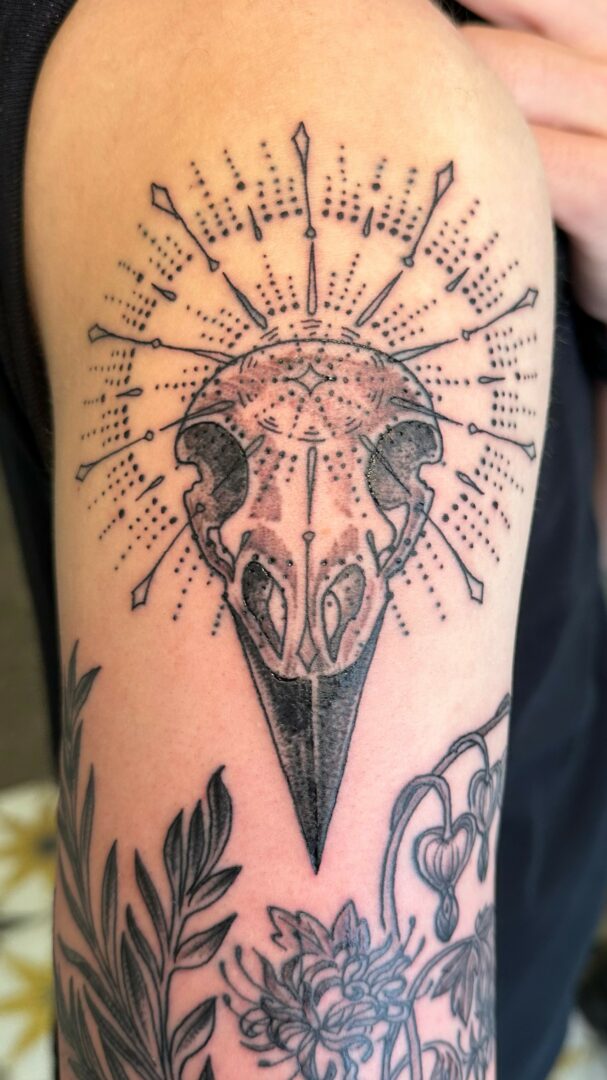
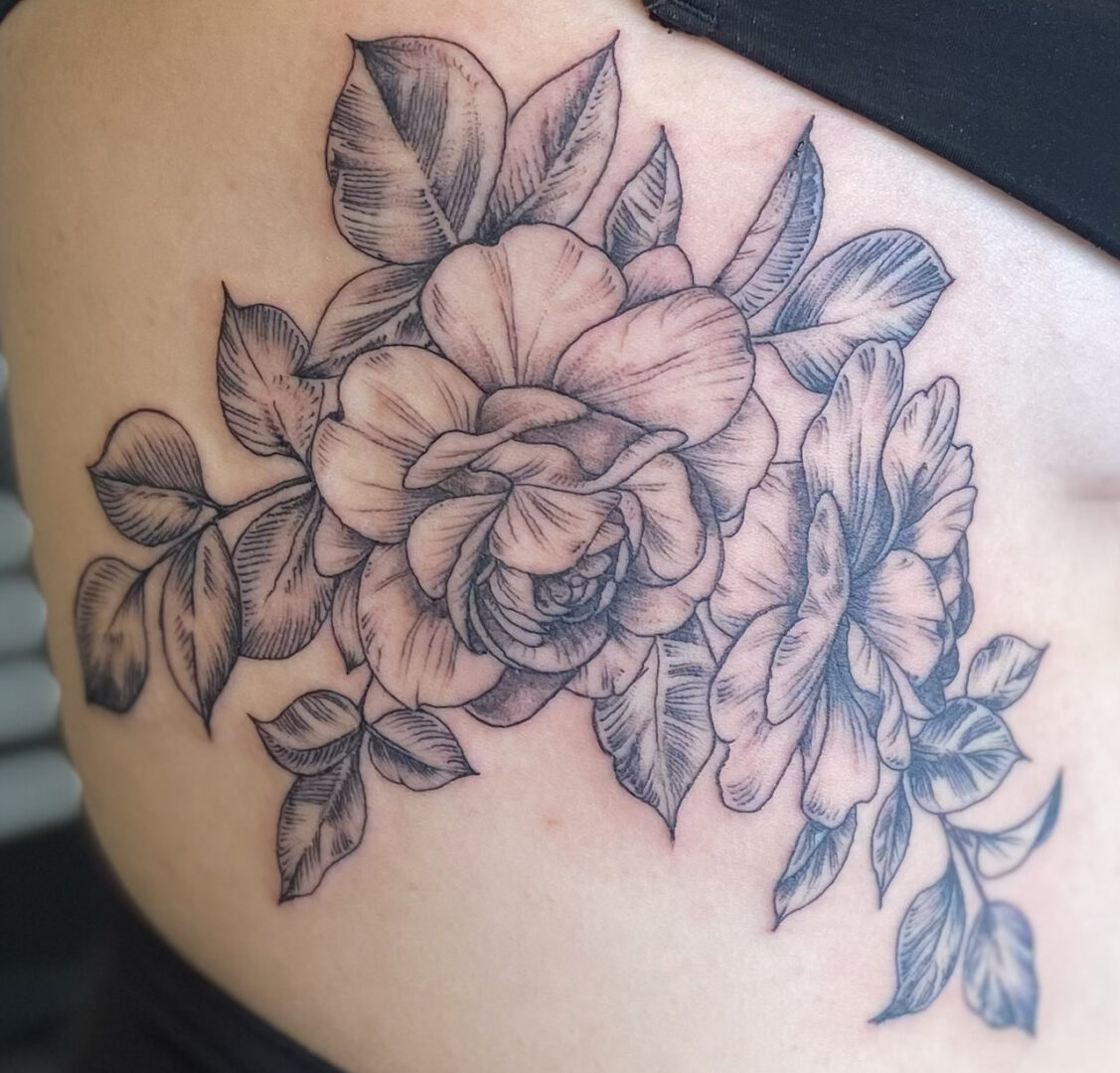
Alright, so before we go we want to ask you to take a moment to reflect and share what you think you would do if you somehow knew you only had a decade of life left?
If I had only a decade of life left, I would quit my job and spend all my time with my wife, friends, and family. I would spend weeks backpacking. I would spend a decent amount of time by myself– I am quiet and solitary by nature. I would continue to volunteer with animals, an activity I have done since childhood and which I find profoundly meaningful. I would make art for no one but myself. I would throw my phone and computer out a window (well, I’d donate them, but I’d get them out of my life). I wouldn’t do anything extreme. I would enjoy my home and garden. I would use what knowledge I have to try and fight discrimination and hate in a world where division and bigotry are on the rise. A decade isn’t a very long time in the grand scheme of things, but it’s enough time to make a small but meaningful impact. I would never set an alarm again. I would ride my bike. I would finally take that trip to New Zealand and I’d stay for like… six months. I wouldn’t worry about using up all my money. I don’t have a huge amount of money now and I don’t see the point in hoarding money or things. In my last year of life I would make sure that what little I have would go to people and places where it would have the most impact. In that last year I would live similarly to how I had lived my whole life and when it was time to die I would want to die in my little garden with my wife by my side.
Contact Info:
- Website: https://www.meadowlarktattoo.com
- Instagram: https://www.instagram.com/meadowlark.tattoo/
- Facebook: https://www.facebook.com/meadowlarktattoo
- Linkedin: https://www.linkedin.com/in/ceialambert/
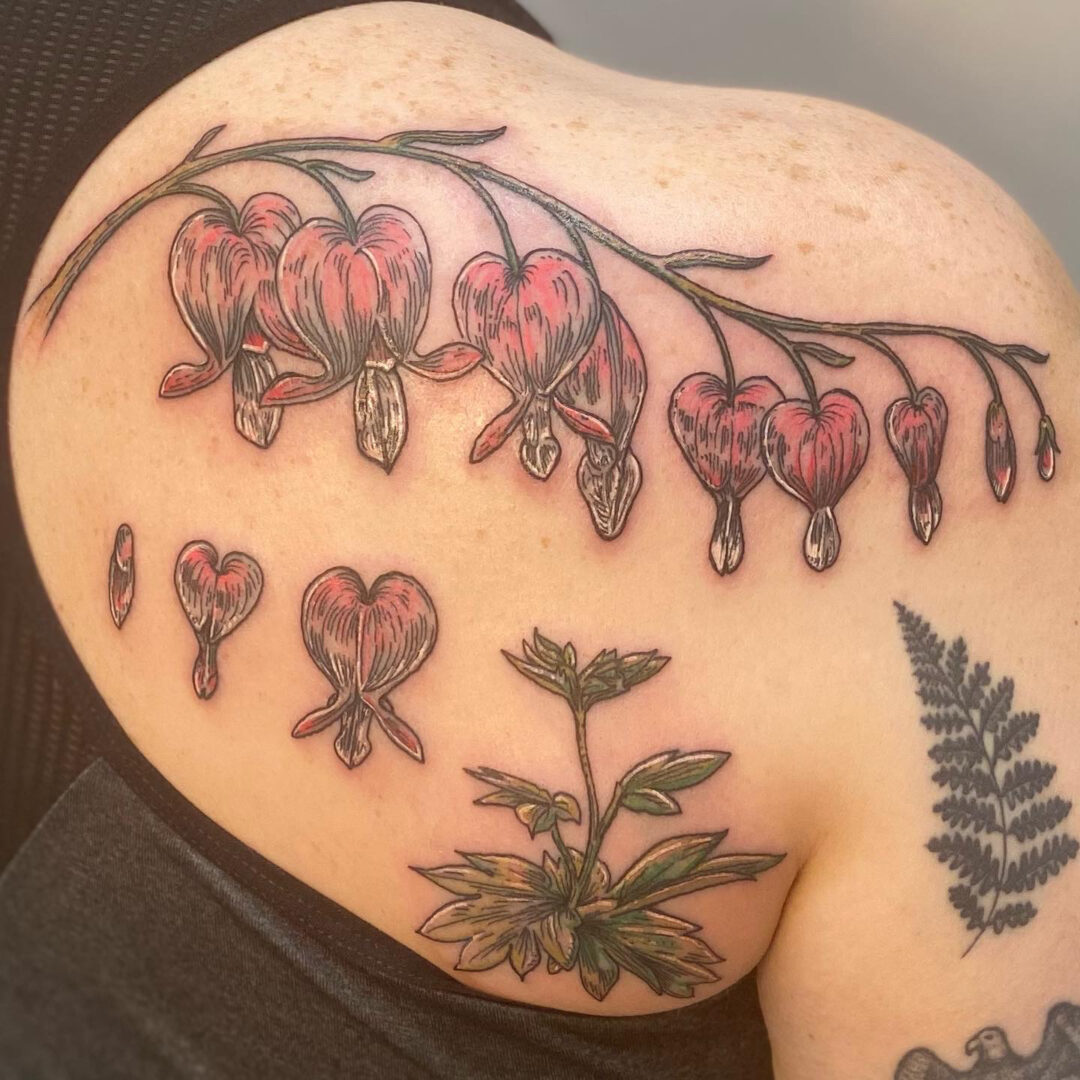
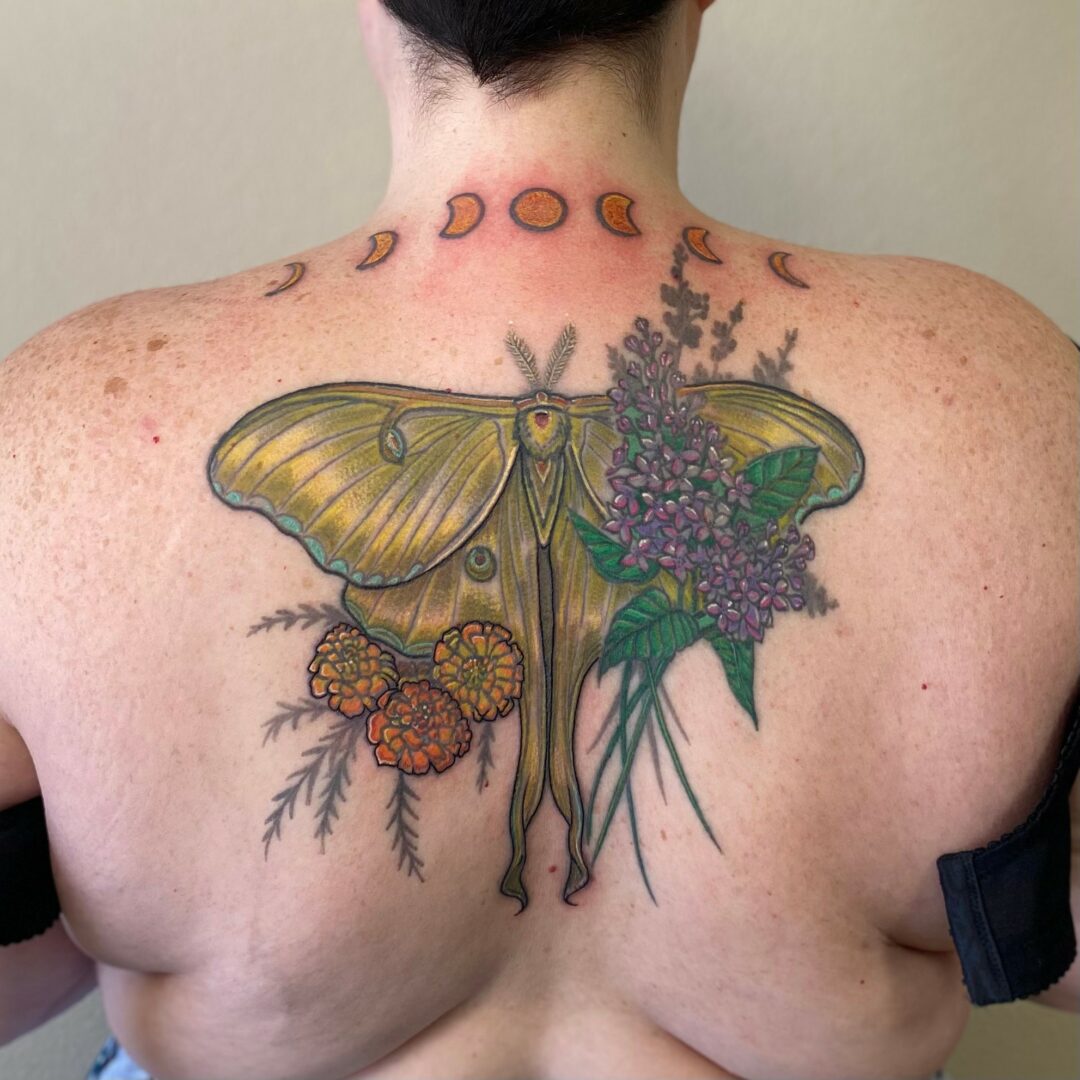
Image Credits
Cei Lambert
so if you or someone you know deserves recognition please let us know here.

